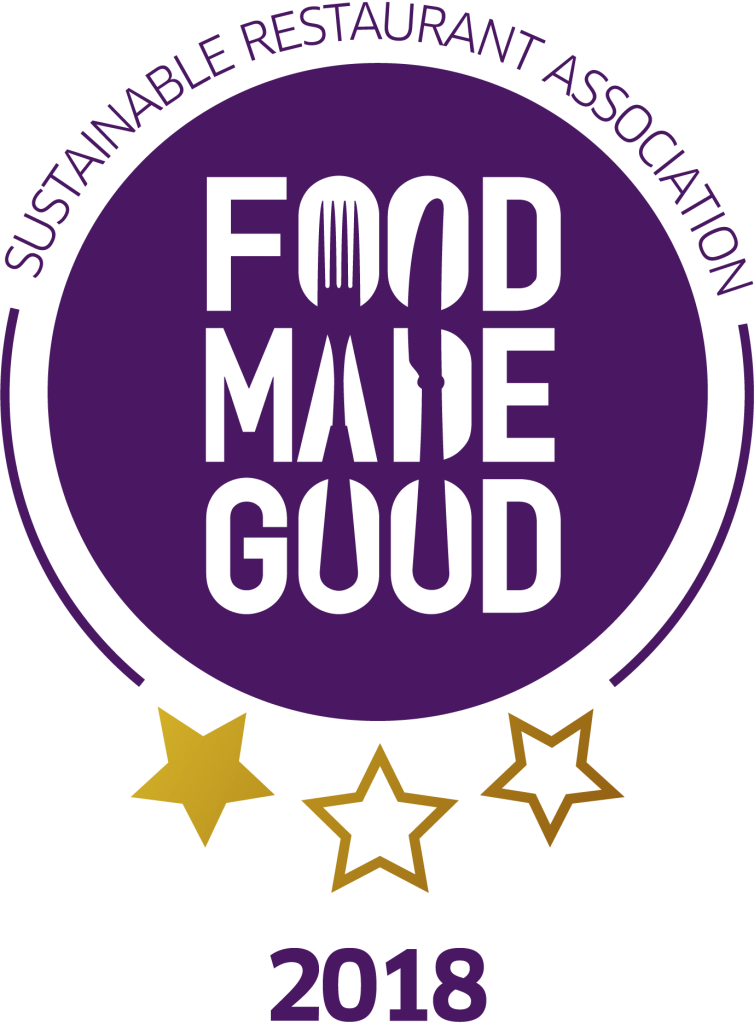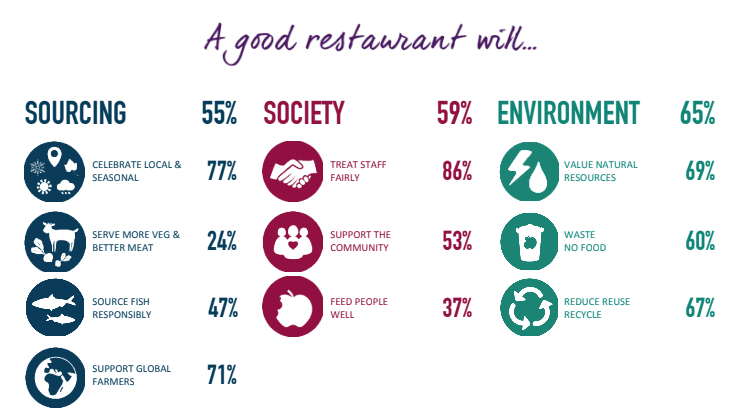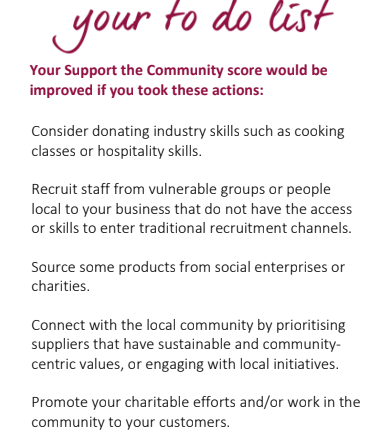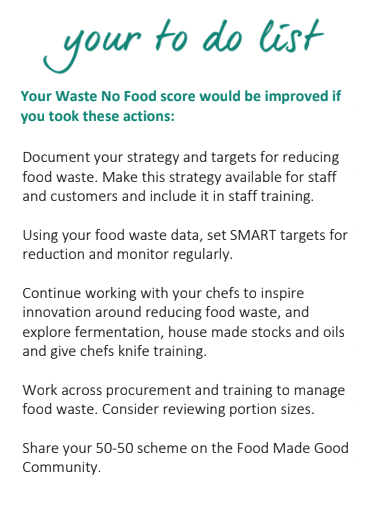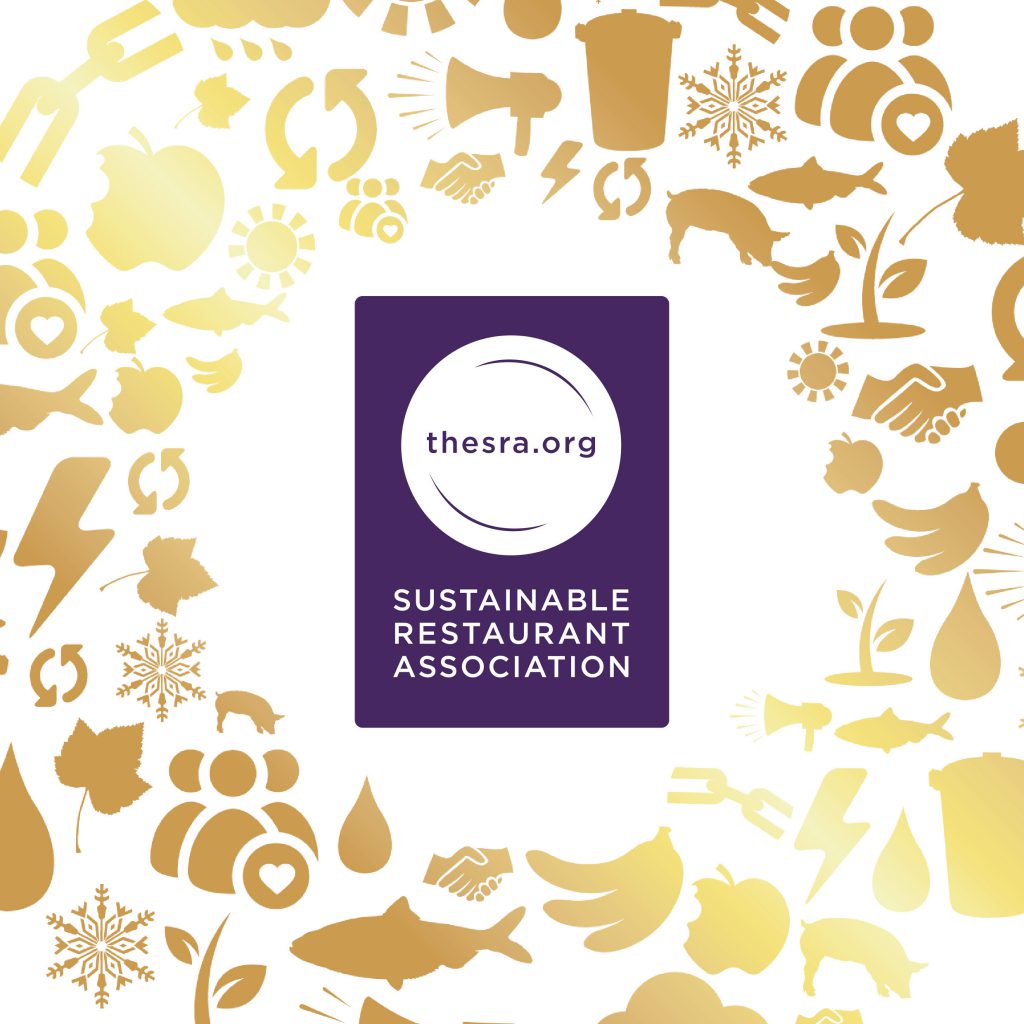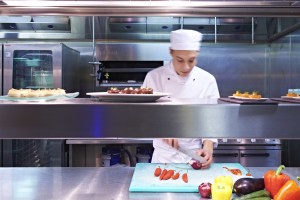This January, King’s received the result of it’s first SRA final report, achieving a one-star rating at 59%.
King’s became a member of the SRA in 2016 and submitted it’s final ‘Food Made Good’ report in November 2018 before achieving its first result this January.
Background of the SRA
The SRA works with food establishments and universities to guide the route to running a more sustainable operation.
The SRA was set up in 2010 by two restaurateurs, Simon Heppner and Giles Gibbons, who identified that while food service businesses saw sustainability as important, there was no consistency in the way it was defined or addressed. The Esmee Fairbarn Foundation recognised the importance of the SRA and supported it as an initial funder. Since 2010, the SRA has since grown from 50 members, to over 8,000 in 2018.
Why King’s is a member of the SRA
The aim of the Food Made Good report and being a member of the SRA is to:
- Identify challenges
- Share successes
- Find solutions
Being a member of the SRA and undertaking the Food Made Good report helps King’s to identify areas for improvement, whilst also benefit from a platform to learn from other establishments and share successes. The result of the Food Made Good report comes with a ‘To Do List’ of actions to help us make the impact King’s has, a more positive one.
Food Made Good Report
The Food Made Good assessment comprises of three main sections: Sourcing, Environment and Society (as mirrored in King’s Sustainable Food Policy).
Within these three sections are ten areas the SRA look at to judge how Sustainable the food enterprise or institution is. These areas include: Supporting Global Farmers, Eat More Veg & Better Meat, Feed People Well, Waste No Food and Valuing Natural Resources.
King’s SRA Report 2018: Results
Below you can see the breakdown of scores King’s achieved in each of these 10 areas for 2018:
Some of sustainable achievements King’s and King’s Food have made across these areas to earn this one-star rating include:
- All food waste goes to Anaerobic Digestion (AD)
- 50:50 food saving scheme – all food that needs to be sold that day, gets 50% price reduction, 50 minutes before close.
- All vegetable trimmings created during prep are used in cooking and coffee grounds recycled (AD or available to staff & students to take)
- King’s Food incorporate sustainability training into the induction of new staff members
- King’s Food are seeking to expand their social influence – for example, King’s Food chefs work with Charities such as the Felix Project.
- Creation of a fully plant-based, vegan-friendly café.
- All electricity purchased by King’s comes from renewable (wind) energy
- Established a Fairtrade and Sustainable Food Steering Group (2016/17). This meets every 3 months and any interested member of staff or students can attend. (Email sustainabiliity@kcl.ac.uk if you would like to attend the next).
To read more on Sustainability at King’s, click here to read the first ever Sustainability Report (2016/17). Sustainability Report 2017/18 to come out mid this year.
Next Steps
The value of this report is that it provides tangible ‘To Do’s’ in each of these ten areas to improve the sustainability of King’s involvement in society, environment and sourcing.
Below shows the To Do List for ‘Supporting the Community’ (section: Society). This To Do List directly appeals to the Service Strategy at King’s, which brings focus to King’s’ responsibility and ability to get more involved with our local surroundings and communities, use our resources to strengthen ourselves and others and push the social side of sustainability further.
Another To Do List for ‘Feed People Well’ (section: society) can be seen below. Over the next year, King’s must emphasise effective training of staff and informing the customer to help nudge healthier, more sustainable meal choices.
To Do List for ‘Waste no Food’ (section: environment). This To Do List is not just about changing your practice but communicating sustainable practice more effectively and sharing this with other universities/food establishments.
King’s Sustainability Team and King’s Food are very proud of this result and look forward to responding to the actions in the To Do Lists. We will be ready to re-submit this year for our 2019 report, to gain our second…and possibly third, star.

